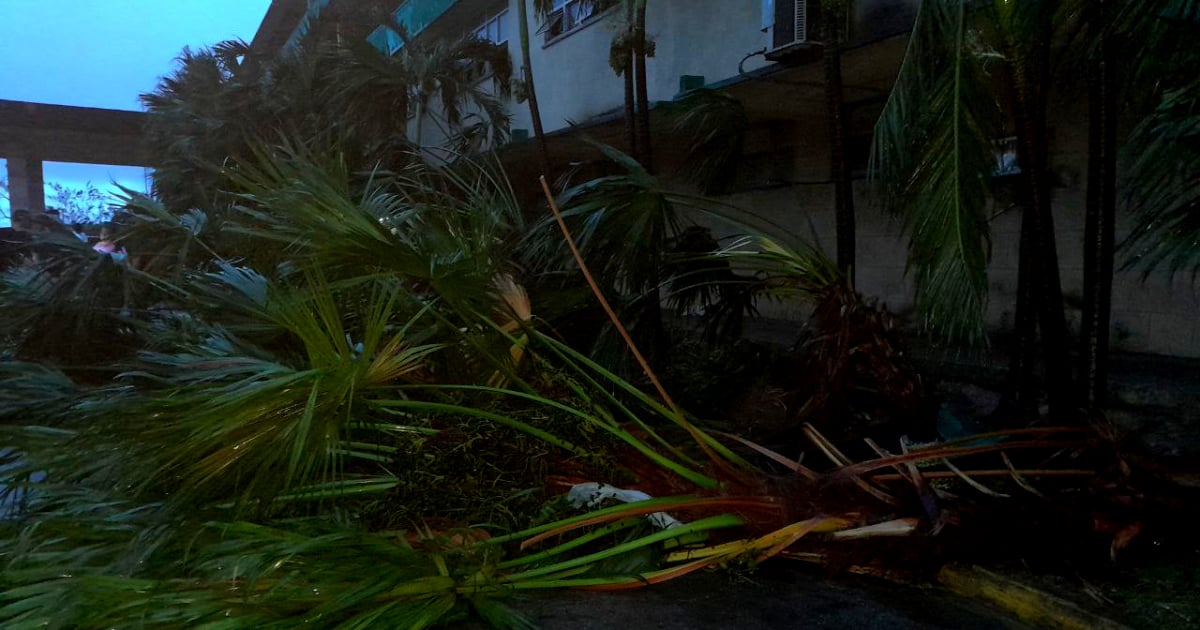Tropical Storm Rafael is expected to strengthen in the coming hours and may strike Cuba as a hurricane. This looming threat adds to the anxiety of Cuban citizens who are already concerned about the fragility of the national power grid. The recently restored but inadequate service, following a total collapse of the electrical system, faces renewed jeopardy from the potential hurricane-force winds and heavy rains that could again endanger the country's electrical infrastructure.
As Rafael moves toward western Cuba, gaining strength, there is growing fear among the population of a repeat of the aftermath of Hurricane Oscar. Oscar's arrival coincided with a massive blackout lasting over three days, leaving the majority of the population without electricity, television, or internet, with only radio communications available.
Current Energy Deficit and Unmet Demand
For this Tuesday, the Cuban Electric Union (UNE) has forecasted a power availability of 1,730 MW against a peak demand of 3,100 MW, resulting in a deficit of 1,370 MW. If these conditions persist, there could be an impact of 1,440 MW, particularly affecting the central and eastern regions.
As Cuba braces for Rafael's arrival, the nation is grappling with an electricity supply that barely meets half of its demand, with the situation's impact being more pronounced in the eastern region. The precarious state of the national power system hinges heavily on the performance of the country's main thermoelectric plant, the Antonio Guiteras in Matanzas.
Thermoelectric Plants in Disrepair
Currently, four thermoelectric generation units are "out of order" due to malfunctions: Unit 5 at CTE Mariel, Unit 5 at CTE Nuevitas, Unit 2 at CTE Felton, and Unit 3 at CTE Rente. Additionally, four other units are "under maintenance": Unit 2 at CTE Santa Cruz, Unit 3 at CTE Cienfuegos, Unit 1 at CTE Felton, and Unit 5 at CTE Renté.
The previous day, the maximum power outage due to generation capacity deficit reached 1,449 MW at 6:30 PM, coinciding with peak demand, surpassing the planned shortage due to higher-than-expected demand, according to UNE's social media updates.
Fuel Shortages and Logistical Challenges
The state-run company, led by Alfredo López Valdés, reported a total of 76 distributed generation plants offline due to fuel shortages, contributing 376 MW, along with nine engines on the Melones barge producing 150 MW, and the Santiago de Cuba barge with 64 MW, for a total of 590 MW.
Despite assurances from the Minister of Energy and Mines, Vicente de la O Levy, that the barges have fuel, the UNE's report highlights the ongoing lack of fuel for these generators. In an interview with state media in late October, the MINEM head explained that the country is facing "complicated logistical situations" that are being addressed, and although the nation has fuel, the arrival of hydrocarbons has been hampered by "sea conditions," preventing ships from docking to deliver supplies.
